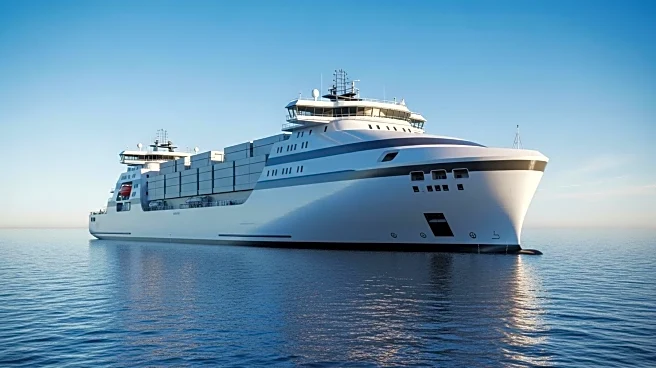What's Happening?
Maersk has embarked on a comprehensive refit program for its chartered fleet, aiming to reduce fuel consumption and emissions while improving operational efficiency. The initiative involves over 1,500 projects across 200 vessels, with plans to complete an additional 1,000 projects by 2027. These refits include structural and technical improvements such as propeller replacements, bulbous bow redesigns, and auxiliary engine waste heat recovery systems. The program is part of Maersk's strategy to cut greenhouse gas emissions by 35% by 2030, compared to 2022 levels. The company is also exploring dual-fuel methanol capabilities for its vessels, having completed a conversion for the Maersk Halifax in 2024.
Why It's Important?
This refit program is significant as it aligns with global efforts to reduce maritime emissions and improve sustainability in shipping. By enhancing the efficiency of its fleet, Maersk not only reduces its environmental footprint but also positions itself competitively in the industry. The initiative reflects a broader trend in the shipping sector towards adopting cleaner technologies and fuels, which could influence regulatory policies and industry standards. The collaboration between Maersk and vessel owners also highlights the importance of partnerships in achieving sustainability goals.
What's Next?
Maersk plans to continue its refit projects, with a focus on integrating alternative fuels and further improving vessel efficiency. The company is likely to explore additional conversions to dual-fuel methanol capabilities, potentially setting a precedent for other shipping companies. As the industry moves towards stricter emissions regulations, Maersk's proactive approach may serve as a model for others, encouraging widespread adoption of similar technologies and practices.









